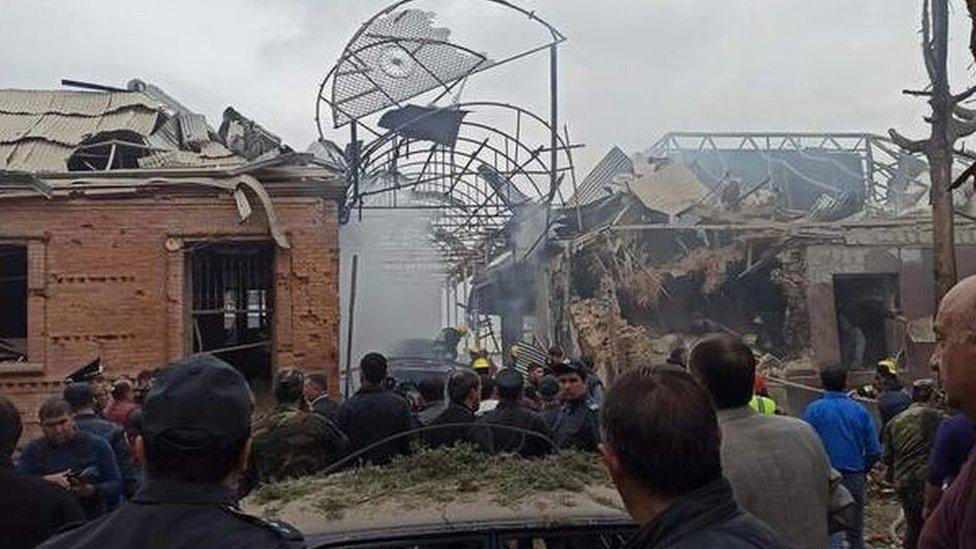Nagorno-Karabakh conflict: US-brokered ceasefire frays soon after starting
- Published
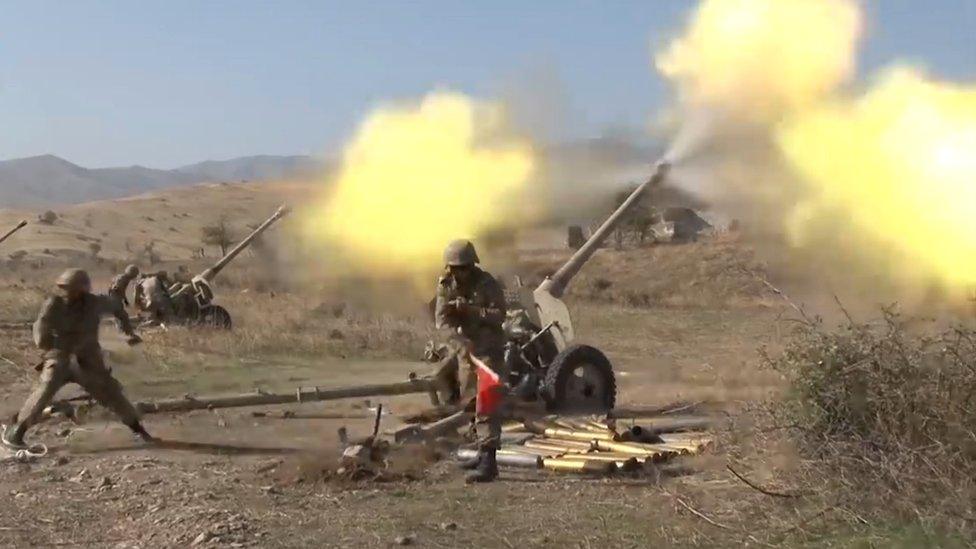
Fighting over the disputed enclave of Nagorno-Karabakh erupted at the end of September
Armenia and Azerbaijan have accused each other of violating the latest ceasefire over the disputed territory of Nagorno-Karabakh, minutes after it came into effect on Monday.
The US-brokered ceasefire had been announced in Washington on Sunday.
Two other ceasefires agreed earlier this month over the conflict were broken almost immediately.
Fighting erupted on 27 September around the mountainous enclave. The conflict has intensified again in recent days.
The "humanitarian ceasefire" was announced on Sunday in a joint statement released by the US, Armenian and Azerbaijani governments, external.
It came into effect at 08:00 local time (04:00 GMT) on Monday.
The announcement followed discussions between US Deputy Secretary of State Stephen Biegun, Armenian Foreign Minister Zohrab Mnatsakanyan and his Azerbaijani counterpart Jeyhun Bayramov. The US state department said agreement was reached following intense negotiations.
US President Donald Trump tweeted on Sunday to congratulate those involved.
Allow X content?
This article contains content provided by X. We ask for your permission before anything is loaded, as they may be using cookies and other technologies. You may want to read X’s cookie policy, external and privacy policy, external before accepting. To view this content choose ‘accept and continue’.

However, within minutes of the ceasefire coming into effect, Azerbaijan accused Armenian forces of shelling the town of Terter and nearby villages in "gross violation" of the agreement.
Armenia's defence ministry said Azerbaijani artillery had fired on military positions in various parts of the front line after the ceasefire agreement had begun.
In a post on Facebook, Armenian Prime Minister Nikol Pashinyan insisted his country "continues to strictly adhere to the ceasefire regime".
Hikmet Hajiyev, a spokesman for the Azerbaijani president, said Armenia was trying to "preserve the status quo based on occupation", adding: "The Azerbaijani side is exercising restraint."

Refugees watch and hope as fighting rages
At the scene: Olga Ivshina, BBC News, Barda, Azerbaijan
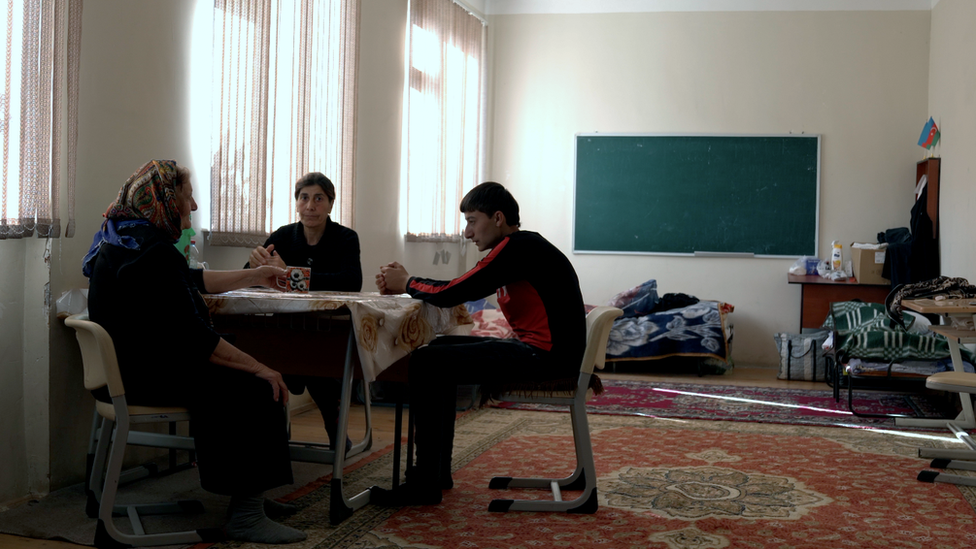
Schools in the town of Barda are crowded but there are no lessons here. Schoolchildren are staying home because of the coronavirus outbreak and their classrooms are now occupied by refugees from the Terter region of Azerbaijan. Shelling there hasn't stopped since the first day of the fighting.
Ostagamed Isfandyarov, now living in the school with his family, proudly shows me his grandson's drawings of a Kalashnikov assault rifle, a machine gun and a rocket propelled grenade.
"Look at how precise the details are," he says.
In the pictures tanks and helicopters shoot at each other. These young boys are yet another generation growing up thinking war is just a part of life.
And these are not the first families to have left everything behind. Thousands of Azerbaijani refugees from the first Karabakh war are still living in state-funded dormitories.
Conditions are pretty basic but for these refugees there is only one problem with where they have been living for the past 30 years - it isn't home. When I arrived I found them glued to the TV waiting for news about the villages and towns being taken by the Azerbaijani army. Finally, they tell me, this could be our chance to go home.

Mediators from the Organization for Security and Co-operation in Europe (OSCE) are also due to meet again on Thursday to discuss the conflict.
Two earlier ceasefires brokered by Russia have failed to hold. The president of Azerbaijan, Ilham Aliyev, has also warned Russia not to get involved militarily in the conflict.
Steve Rosenberg speaks to ethnic Armenians under fire in Nagorno-Karabakh
Nagorno-Karabakh is recognised internationally as part of Azerbaijan but is under ethnic Armenian control.
Clashes that began in the region in September quickly escalated into a large-scale conflict, with the shelling of towns and cities and the alleged use of banned cluster munitions.
Several thousand people have died and shelling has killed civilians on both sides. Tens of thousands have fled their homes.

More on the Nagorno-Karabakh conflict:
Orla Guerin on the scene of the blast in Ganja: "It looks more like all-out war than ceasefire"
- Published24 October 2020
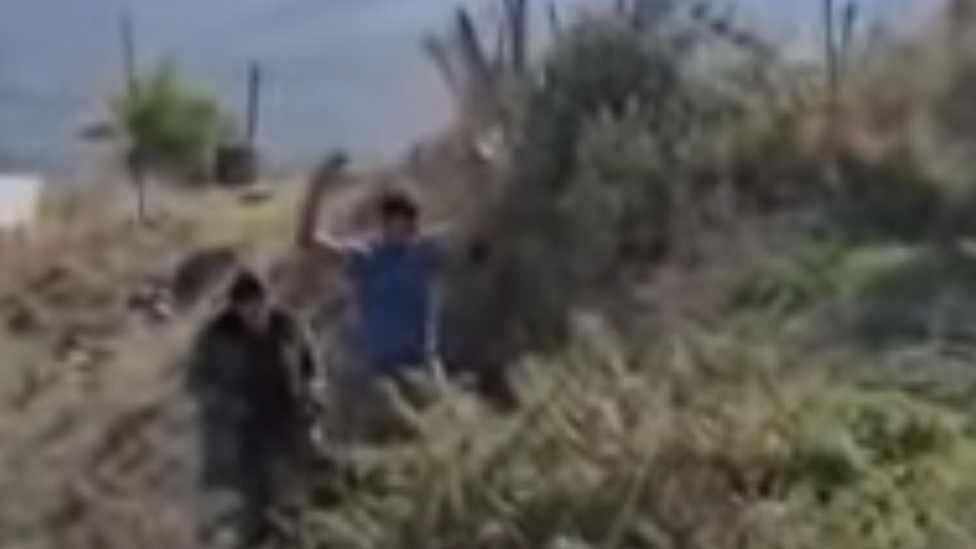
- Published14 October 2020
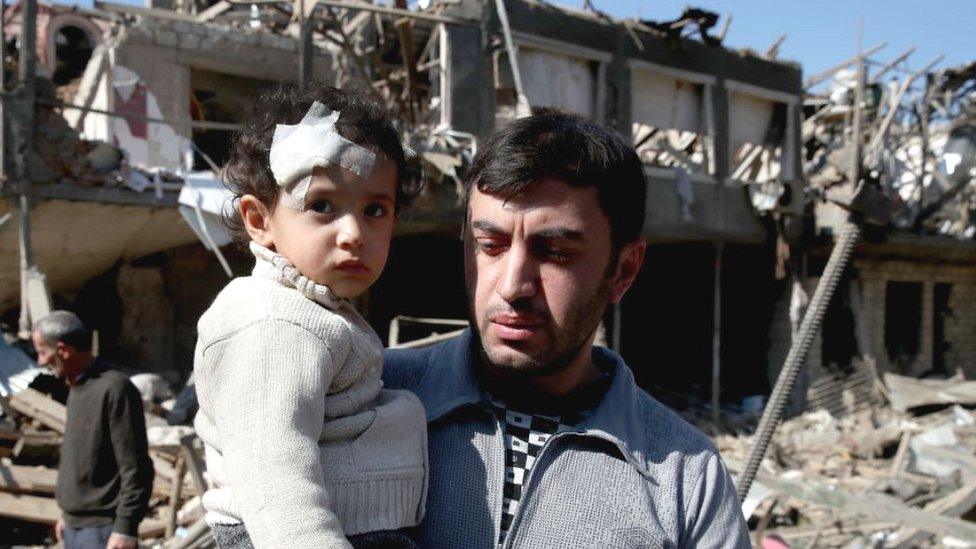
- Published5 October 2020
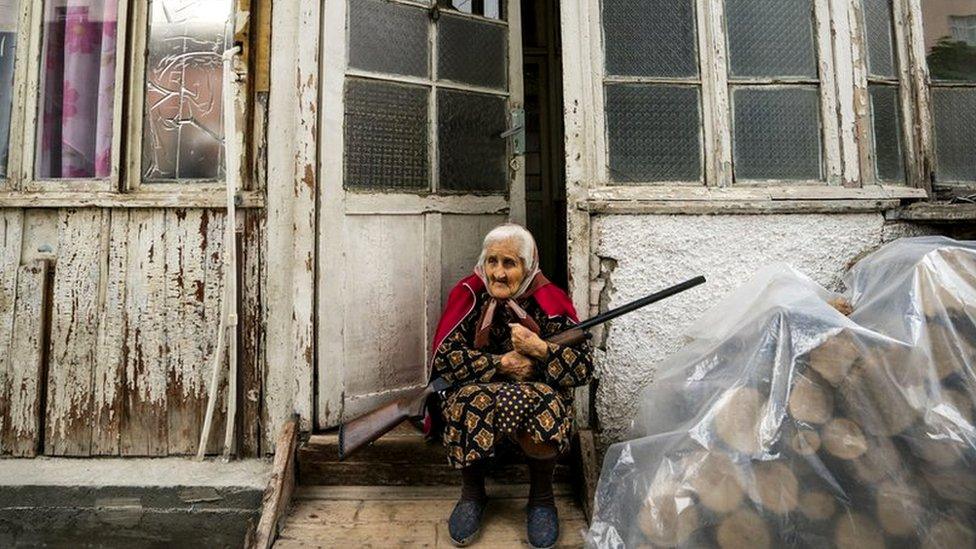
- Published4 October 2020
